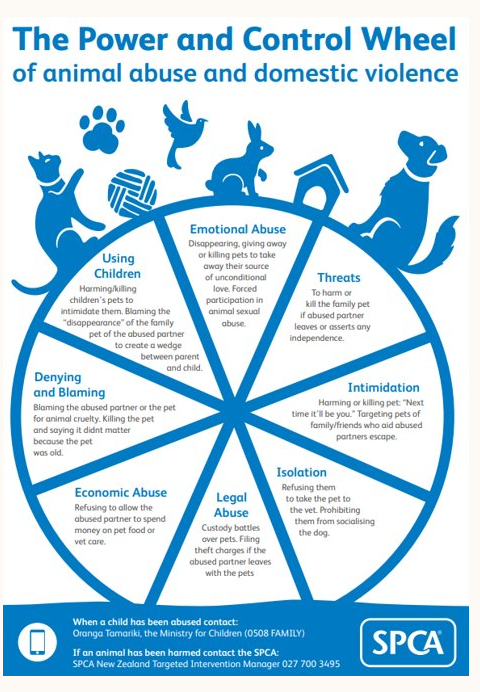Domestic violence is a widespread issue that causes emotional and physical harm to people around the world, including in our community in North Lake Tahoe and Truckee. What’s often overlooked is the connection between domestic violence and abuse toward animals. During Domestic Violence Awareness Month, Sierra Community House seeks to increase awareness of these interconnected issues, and what we can do to help.
The Power & Control Wheel – This serves as a tool to understand the dynamics of power and control in situations involving animal abuse and domestic violence. From the visual, you’ll see a variety of ways in which animals are used to exert control over victims, and how these tactics mirror those used in domestic violence situations.

Ask About Pets – When supporting someone who is experiencing domestic violence, asking about their pets may not be an obvious thing to do. Here are a few questions to approach the situation with sensitivity:
- Do you share your home with an animal, such as a pet, service animal, or support animal?
- Have you ever experienced any instances where your abuser harmed your pet or made threats against your animal companion?
How to Help – Supporting someone who is facing domestic violence and pet abuse is a complex and sensitive situation. Here are some steps you can take to help:
- Listen without judgement
- Secure their immediate safety by developing a comprehensive safety plan for survivors and their pets. This plan encompasses various critical steps, such as:
-
-
- Establishing a list of emergency contacts, including local law enforcement, animal control services, veterinarians, animal hospitals, and local community helplines
- Identifying secure locations for pets to stay if the survivor needs to leave quickly.
- Preparing an emergency kit for pets, which should include things like food, water, medications, leashes, and essential documents such as vaccination records and licenses.
- Mapping out safe escape routes from the home.
- Ensuring that all safety plan information is kept confidential and inaccessible to the abuser.
-
- Recognize that pets are often companion animals offering emotional support, security, non-judgmental connections, and affection. Acknowledge the importance of keeping a survivor and their pet together whenever it is possible to do so.
- Help the survivor find a safe place for their pets to stay, such as a shelter that is pet friendly (https://www.safehavensforpets.org) , with friends/family, or at a local animal shelter
- Suggest they document evidence of the abuse (such as photographs, vet bill records, eye-witness statements) that could be crucial for legal purposes. In both CA & NV civil protection orders can include pets.
- Assist with the connection to supportive services such as SCH Helpline of SCH offices for connection to Crisis Advocate
If you suspect someone is in immediate danger or that animals are being abused, contact the Sierra Community House 24/7 Helpline at (800) 736-1060 for guidance.

Recent News





